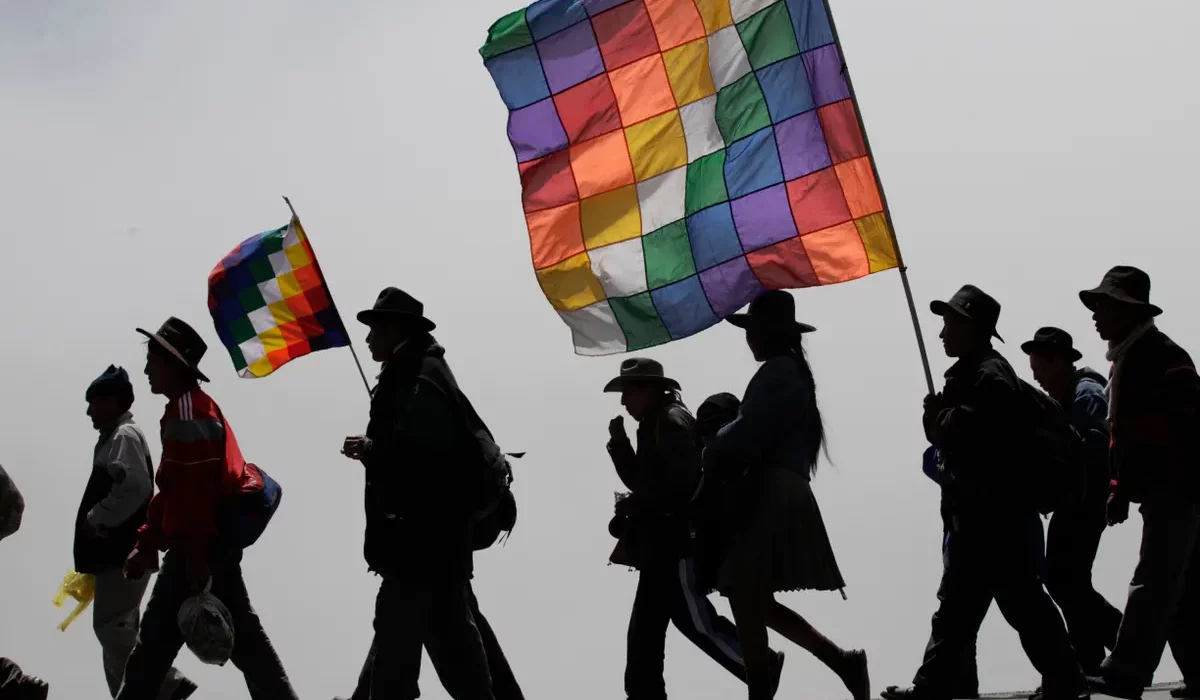In the face of adversity, Indigenous communities in the Southwestern United States are demonstrating remarkable resilience and unwavering commitment to protecting their ancestral lands. Despite encountering setbacks in the legal arena, these communities refuse to be silenced. Instead, they are amplifying their voices on the global stage, garnering attention and support for their cause. Their determination stems from a deep-rooted connection to their lands and a steadfast belief in their inherent rights as Indigenous peoples.
With each challenge they face, these communities grow stronger and more united in their pursuit of justice. They refuse to accept the status quo, recognizing that their struggle is not just about a single project but about the preservation of their culture, identity, and way of life. Through their advocacy efforts, they are shining a spotlight on the broader issues of Indigenous rights and environmental justice, inspiring solidarity and action from allies around the world. In their resilience, they embody the spirit of perseverance and hope for a future where Indigenous voices are heard and respected.
Challenges of Green Energy Development
The clash between green energy development and Indigenous rights has come to the forefront with the SunZia wind-transmission project. While touted as a milestone in clean energy infrastructure, its path through Indigenous lands has sparked controversy and legal battles. The project highlights the complexities of balancing environmental goals with respect for Indigenous sovereignty.
Seeking Justice Through International Channels
Faced with a federal court’s rejection of their lawsuit, Indigenous nations are turning to the international community for support. Amy Juan’s address at the United Nations Permanent Forum on Indigenous Issues underscores the importance of seeking recourse beyond national borders. By bringing their grievances to the global stage, Indigenous peoples aim to hold decision-makers accountable and garner international solidarity.
The Importance of Due Process
Central to Indigenous opposition to the SunZia project is the perceived lack of due process. Amy Juan’s assertion that the issue lies not in opposition to green energy itself but in the flawed decision-making process reflects a nuanced understanding of the situation. Indigenous communities emphasize the need for meaningful consultation and consent, highlighting systemic flaws in project planning and implementation.
Ecological and Cultural Preservation
At the core of Indigenous resistance to the SunZia project lies a profound commitment to ecological and cultural preservation. The looming threat of the transmission pipeline casts a shadow over sacred lands and delicate ecosystems, posing irreparable harm. Indigenous nations’ legal challenges represent a resolute effort to safeguard their heritage for generations to come, recognizing their sacred duty as stewards of the land. Their actions transcend mere legal battles; they are a testament to the enduring connection between Indigenous peoples and their territories, rooted in reverence and respect for the natural world. Through their resistance, they affirm the intrinsic value of biodiversity and cultural diversity, underscoring the importance of protecting these vital resources for the benefit of all.
Navigating Legal Hurdles
The federal court’s dismissal of the tribes’ lawsuit underscores the intricate challenges Indigenous communities encounter within the legal system. Despite earnest endeavors to propose alternative routes and ensure thorough land reviews, they confront formidable barriers. This dismissal prompts reflection on the need for heightened clarity and sensitivity to Indigenous perspectives in legal proceedings. The complexities of legal timelines and interpretations often disadvantage Indigenous groups, emphasizing the imperative for a more inclusive approach. Achieving justice requires acknowledging and addressing these disparities, fostering a legal environment where Indigenous voices are not only heard but also valued and respected. By prioritizing Indigenous rights and perspectives, the judicial process can evolve to better serve the diverse needs and aspirations of all stakeholders involved.
Global Solidarity and Advocacy
As Indigenous representatives advocate for their rights at the United Nations, they not only highlight the specific challenges posed by the SunZia project but also emphasize its broader implications for Indigenous peoples worldwide. Andrea Carmen’s call for a moratorium on green energy projects until Indigenous rights are fully respected resonates deeply with Indigenous communities globally, who often face similar struggles in defending their lands and cultures against encroaching development.
By uniting under a common cause, Indigenous groups are forging powerful networks of solidarity and support. Their collective voice serves as a reminder to governments and businesses alike that Indigenous rights are non-negotiable and must be prioritized over profit-driven agendas. Through their advocacy efforts, they seek not only to halt harmful projects but also to pave the way for a more equitable and sustainable future where Indigenous peoples’ rights are fully recognized and upheld on a global scale.
Conclusion: Towards Equitable Green Energy Development
The challenges faced by Indigenous communities in opposing the SunZia wind-transmission project highlight the urgent need for a paradigm shift in green energy development. Moving forward, decision-makers must prioritize meaningful consultation and consent, in line with international standards such as the U.N. Declaration of Human Rights. By fostering collaboration and mutual respect, we can strive towards a future where green energy initiatives uphold Indigenous rights and contribute to sustainable development for all.

